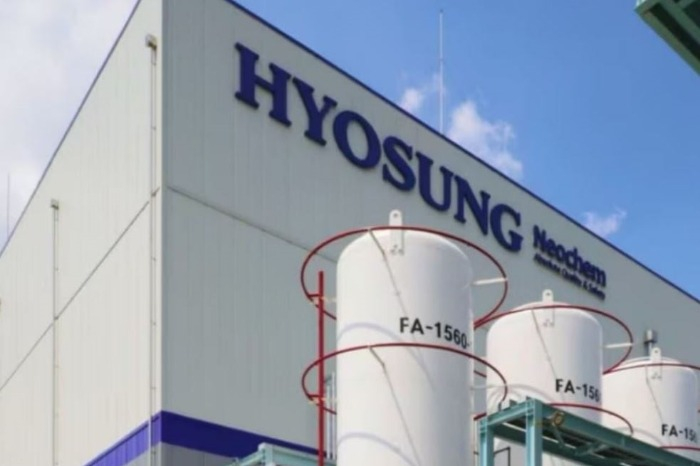
Hyosung Chemical Corp. has failed to reach an agreement with a consortium of IMM Private Equity and STIC Investments Inc. to sell its specialty gas division for 1.3 trillion won ($931 million). Investment banking sources blamed the collapse of the talks on its grim earnings outlook heavily dependent on Samsung Electronics Co.
The South Korean chemical company said on Thursday it is now contacting other potential buyers. The sources said it is considering various options, including a minority stake sale, as part of an effort to improve its financial structure.
In July, Hyosung named the IMM-STIC consortium as the preferred buyer of the specialty gas division.
“We had held discussions with the preferred bidder to sign a deal to sell our special gas division, but has not reached an agreement,” Hyosung said in a regulatory filing on Thursday. “We are in talks with other investors to proceed with the specialty gas business sale.”

Hyosung’s specialty gas divison generates 76% of revenue from Samsung Electronics that is struggling to catch up to its smaller rival SK Hynix Inc. in the market of advanced chips such as high-bandwidth memory.
Accordingly, earnings forecasts for the specialty gas division for 2025 have been lowered than where it was at the time of entering negotiations with the IMM-STIC consortium.
The Seoul-based private equity firms had demanded a cut in the sale price from the initial proposal of 1.3 trillion won to below 1 trillion won to factor into its bleak business outlook. But Hyosung rejected the demand, said the sources.
By Jong-Kwan Park
pjk@hankyung.com
Yeonhee Kim edited this article.















